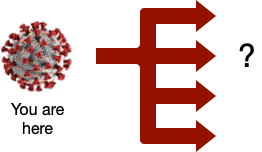2023-06-22
The landlords, the serfs and the taxes: why the Reddit story sounds so familiar
Once upon a time, there was a powerful landlord who owned much of the land. He had lots of serfs working on that land. While the landlord was an absolute monarch and profited from the work of the serfs more than he otherwise would have, both landlord and tenants were mostly happy with the arrangement.
Then one day, the landlord decided to raise taxes. He didn’t talk to his serfs first. He, just one day, out of the blue, announced that there would be taxes, and specifically taxes on the tools that the serfs were using to make themselves more productive.
Not only were the unexpected taxes high, they were so high that it made it effectively impossible for the serfs to continue using those tools, thereby reducing productivity and happiness of the serfs.
Guess what happened next?
Surprising absolutely nobody, the serfs – well, some of them – revolted. Some stopped farming their fields. Some closed their markets and stores. Some planted signs all over the land with directions to other lands not controlled by this landlord, suggesting that everybody pack up and leave the lord’s land. Some ingenious serfs even started mislabeling their produce, calling it “not safe”, thereby striking directly at the revenue stream of the landlord.
So the landlord struck back. He fired foremen and village elders, inviting less scrupulous others to take over their place. He forced stores to open again, and sent his goons to remove the “not safe” stickers.
I’m writing this in political terms, because the analogy is just so incredibly striking.
By that analogy, we all know history and what might come next. As in history, the short-term outcome is uncertain. The longer-term trends, however, are clear.
![[Logo]](https://reb00ted.org/assets/logo.png)

